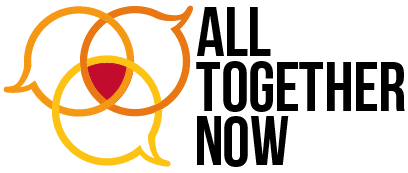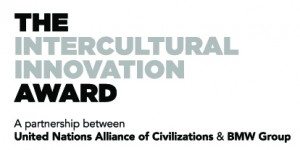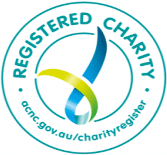An Anti-Racism App For Primary School Children
Inspired by the impact of the Everyday Racism mobile app to encourage positive behavioural change among adults, we embarked upon the challenging task of reducing the incidences of racism among children. The Kids Together Now app aimed to promote positive peer relationships among students, which enhanced their academic outcomes and improved physical and mental health outcomes.
It also provided primary school teachers with a stronger understanding of racism and other forms of exclusion from a child’s perspective, which helped teachers to more confidently identify and address racism in the classroom.
How The App Worked
The app was designed as a one-term classroom tool to teach students aged 8 to 10 years old how to identify and challenge non race-based and race-based exclusion.
Students played through one storyline each week in class over a period of 8 weeks. Each storyline provided a hypothetical situation where social exclusion may have occurred, such as in the playground, at the beach, or during sporting activities. By providing a framework of scenarios for students to work through, the app acted as an intervention to address prejudice and stereotypes during a critical period for children’s personal development.
An important part of the effectiveness for the app to serve as a means to reduce prejudice was the in-class conversation and dialogue that immediately followed the playing of the app. We created a series of Lesson Plans in PDF format, to help teachers facilitate meaningful discussions in the classroom. Together, the app and Lesson Plans assisted teachers in meeting the Intercultural Understanding capabilities within the Australian Curriculum.
The Kids Together Now app was available for use on any device with a browser and internet connection, including iPads and desktop computers.
How The App Worked For Teachers
Teachers could access the Lesson Plans and app by using the lesson plan booklet that coincided with each chapter in the app. They then provided the link to the app to each student in their class. After each lesson, the teachers provided their feedback to help us understand whether or not the program was helpful.
Thanks to our funders, the United Nations Alliance of Civilizations, BMW Group and the Alfred Deakin Institute for Citizenship and Globalisation, All Together Now was able to produce the Kids Together Now app so that it could be made freely available for Australian teachers.
How Parents Used The App
Parents guided their child/ren through the app for school assignments, or general learning about racism.
The science behind this project
School is the predominant location for racism to occur among children, with most perpetrators being other students[i]. 67% of secondary students surveyed in Victoria who had experienced racism had that experience at school[ii].
In Australia, callers’ response data from the national Kids Helpline reveals that Aboriginal and Torres Strait Islander students and students from language backgrounds other than English were much more likely to experience bullying at school than other students.
Social science and public health research has linked racism to various morbidities, especially relating to mental health[iii].
The app’s focus is on children aged 8-10 years old, because:
- by the age of 8, children develop reconciliation skills as well as become capable of understanding peer group dynamics; thus anti-bias education is beneficial for children from this age onwards; [iv][v]
- by the age of 9, children recognise social comparison information, and become aware of differences based on race and ethnicity; [vi]
- by the age of 10, children recognise both overt and covert racism as well as social inequalities [vii][viii] and anti-racism interventions around age 9-10 seem to be particularly important due to the permeability of prejudice development at this age [ix]; and
- it is necessary to create developmentally appropriate intervention strategies in childhood to address prejudice and racism before stereotypes are deeply entrenched by adulthood. [x]
Professor Melanie Killen [xi] also points to the necessity of a multi-method approach for intervention to reduce prejudice in the childhood years, which necessarily relies on innovative techniques reflecting social media used by children today.
With regards to teachers, a recent NSW study found that only half of classroom teachers had undertaken professional learning around incorporating anti-racism strategies into lessons, with 20% not having taken any professional learning in multiculturalism. 60% of teachers agreed that implementing anti-racism strategies are effective for fostering cultural inclusiveness in school. Of all the teachers surveyed, over 50% agreed that racism is a problem in schools [xii].
Kids Together Now was produced with academic rigour, with the lead academic team comprising Professor Melanie Killen, University of Maryland (USA), Professor Fiona White, The University of Sydney (Australia), and Dr Naomi Priest, Australian National University (Australia). However the app is no longer available for public use.
Social Impact
The multi-disciplinary team behind Kids Together Now evaluated the social impact of the app and teacher Lesson Plans.
We sought to achieve the following primary outcomes during the course of this project:
- Promoting positive peer relationships among students, which lead to better academic outcomes.
- Improved physical and mental health outcomes among students – for both victims and perpetrators.
- Stronger social skills and conflict resolution skills among students, who were better able to identify and challenge incidences of racism.
- Teachers’ increased understanding of what racism looks like in a child’s world, what to look out for, and greater confidence and vocabulary to address racism in the classroom.
- Enabling teachers to have a classroom with fewer racially-motivated conflicts, allowing them to focus more on the curriculum.
References For Further Information
[i] Centre for Multicultural Youth, 2014, “Everyday Reality: Racism and Young People”.
[ii] Mansouri, F. & Jenkins, L., 2010, “Schools as sites of race relations and intercultural tension”, Australian Journal of Teacher Education, 35:7, pp 93-108.
[iii] Priest, N. et al., 2014, “Experiences of Racism, Racial/Ethnic Attitudes, Motivated Fairness and Mental Health Outcomes Among Primary and Secondary School Students”, Journal of Youth and Adolescence.
[iv] Johnson, P. J. & Aboud, F. E., 2013, “Modifying ethnic attitudes in young children: the impact of communicator race and message strength”, International Journal of Behavioural Development, 37:182.
[v] Killen, M., Mulvey, K.L., & Hitti, A. (2013). Social exclusion: A developmental
intergroup perspective. Child Development, 84, 772-790.
[vi] Rutland, A., & Killen, M. (2015). A developmental science approach to reducing prejudice and social exclusion: Intergroup processes, social-cognitive development, and moral reasoning. Social Issues and Policy Review, 9, 121-154.
[vii] Brown, C. S. & Bigler, R. S., 2005, “Children’s Perceptions of Discrimination: A Developmental Model”, Child Development, 76:3, pp 533-553.
[viii] Killen, M., Mulvey, K.L., & Hitti, A. (2013). Social exclusion: A developmental
intergroup perspective. Child Development, 84, 772-790.
[ix] Raabe, T. & Beelman, A., 2007, “Development of ethnic, racial, and national prejudice in childhood and adolescence. A multinational meta-analysis of age differences”, Child Development, 82:6, pp 1715-1737.
[x] Rutland, A., & Killen, M. (2015). A developmental science approach to reducing prejudice and social exclusion: Intergroup processes, social-cognitive development, and moral reasoning. Social Issues and Policy Review, 9, 121-154.
[xi] Rutland, A., & Killen, M. (2015). A developmental science approach to reducing prejudice and social exclusion: Intergroup processes, social-cognitive development, and moral reasoning. Social Issues and Policy Review, 9, 121-154.
[xii] Watkins, M., Lean, G., Noble, G., Dunn, K. (2013), “Rethinking Multiculturalism, Reassessing Multicultural Education”, Project Report Number 1, University of Western Sydney, NSW Department of Education and Communities and NSW Institute of Teachers.


